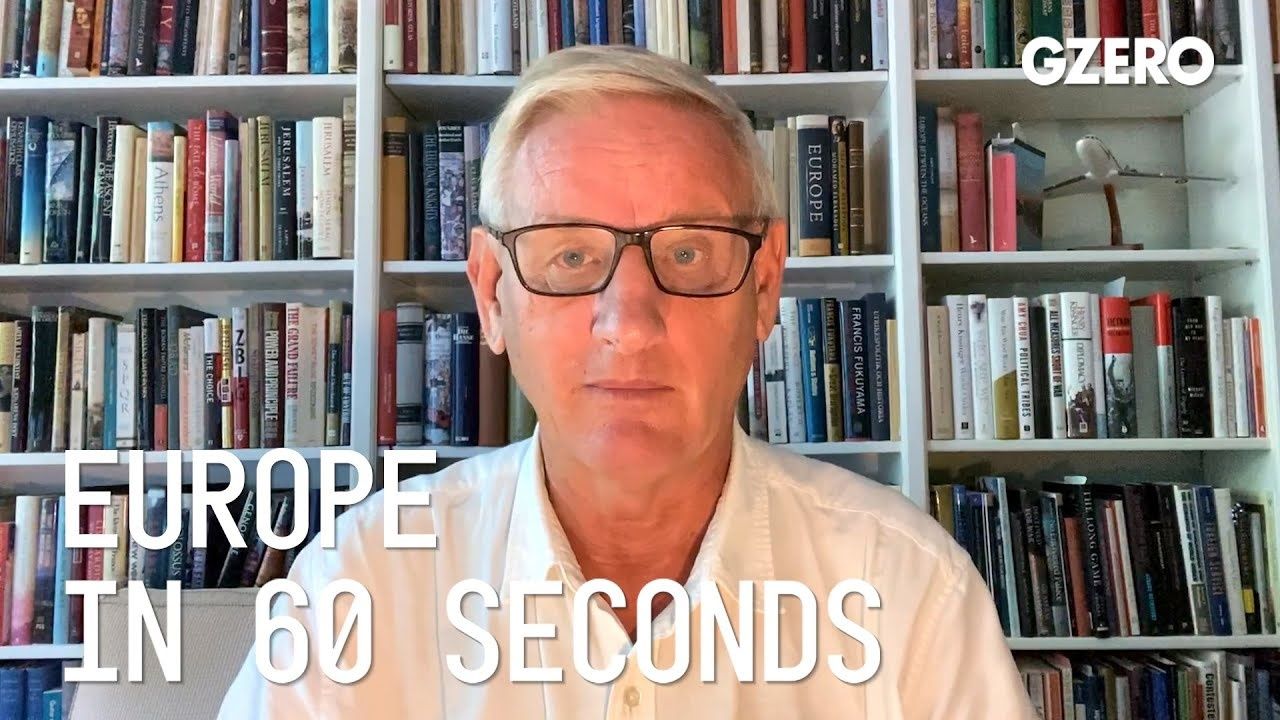
Carl Bildt, former Prime Minister and Foreign Minister of Sweden, with this week's Europe In (more than) 60 Seconds
So what's really going on in Belarus and where is it likely to end?
Well, I wish I knew where it's going to end, I don't.
But look at the background first, briefly, what is Belarus?
Well, it's nine million people situated on the plains of Central Europe. It's an area that historically has been part of the Polish-Lithuanian Commonwealth for a long time. But of course, during the last few centuries, has been part of Russia or the Soviet Union. It was a fairly docile and uninteresting Soviet republic, very much destroyed in the horrors of the Second World War, where a lot of the fighting, the major fighting was on the territory of what is today Belarus, with the Holocaust and German and Soviet armies and all of those horrors, and rebuilt in Soviet style to a certain extent, if you look at Minsk. Then when the Soviet Union fell, Alexander Lukashenko, who had been running a collective farm, took over and has been running it since then. I think he was winning elections genuinely in the beginning, no question about that. But in their later decades, he has been falsifying elections and he has been ruling by repression. That works for a while and now it doesn't work any longer. He probably thought that he could repeat that performance this time. Falsification, 80%, he said. No one believes that. And then an amount of repression and then go back to business as usual. That did not work. That did not work. Things have changed.
He mishandled COVID. He's been there for 26 years. Changes have happened in society. There's a young population who wants more freedom, wants to see more of independence of that particular state. They are also afraid of being absorbed by Russia, that is squeezing Belarus more and more. Russia has significant strategic interests in Belarus, no question about that. But the fact that he has not been reforming its economy, he's running a post-Soviet economy, which is more Soviet than post, with significant losses, and the need to be bailed out by Russia now and then, and dependent upon cheap Russian oil and gas, which the Russians are no longer prepared to give him.
So he's in a terrible squeeze in economic terms. People are fed up with him after 26 years. And he mishandled COVID. And accordingly, we see the reaction on the streets. Now, what's going to happen? He tried to suppress the entire thing with violence, that failed. That failed in the initial days of after the election. And he had to tolerate these massive demonstrations, enormous demonstrations that we've seen. Absolutely unheard of in Minsk and throughout all of the cities of Belarus as well. I think we are now in a period where he believes that he can still remain. He's calling on Putin all the time to help in the one way or the other, saying there's an external threat, there's that nasty, there's even more nasty NATO coming, so I need the help of brother Russia in order to handle this. I think the Russians are somewhat reluctant. There are no tears shed in Moscow for Lukashenko as a person. But of course, they want someone there that they can rely on. And they have strategic interest in that particular territory that we must recognize.
The European Union is giving very solid support, morally, to democracy in Belarus, obviously, and is now preparing significant sanctions against those involved in both the repression and in the falsification of elections. See if that can have any impact on the internal dynamics of the regime. Moscow is clearly seeing what they can do. I mean, I think they are giving significant advice on how to, sort of, increase some sort of repression. At worst, he will try to do a serious violent crackdown. That might work, that might fail. We might be in a situation where Russia has to move in and help him from that. That would be a very, very nasty development. But there might also be a situation where you can engineer some sort of succession. One could think of a new election in which one allows those that were banned by Lukashenko from standing in the previous elections, that they can stand. And if you look at those candidates, they are not sort of anti-Russian in any sort of way. I think they should be sort of tolerable from the Moscow point of view. The Armenian revolution in 2018 could be served as a model where suddenly, massive demonstrations led to changing regime and new people came to power, and Moscow said, "okay, as long as our fundamental strategic interests are are respected then we are okay with this." Belarus is more important from the Russian point of view than Armenia. So, let's see. It's a major story. It will have a major impact on the future of that part of Europe. And it has a long-term impact on the future of Russia.